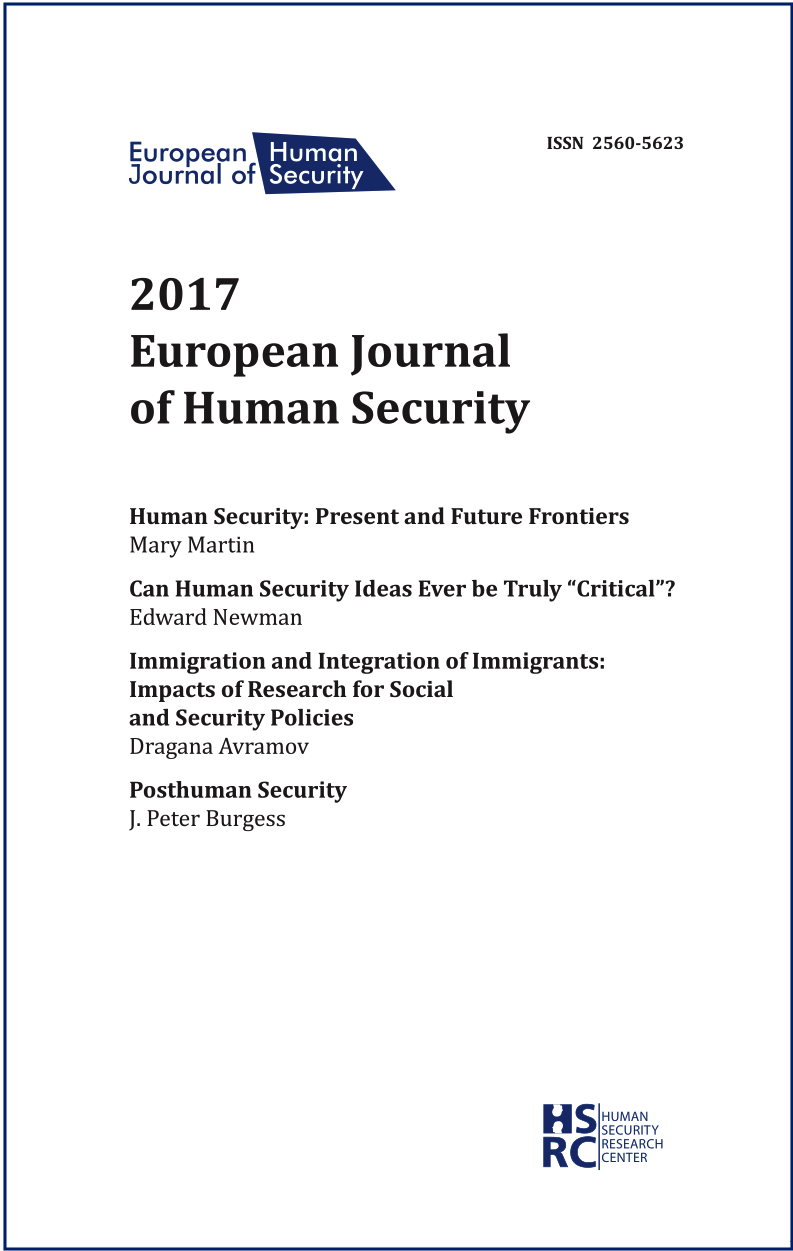
J. Peter Burgess (2018) Posthuman Security European Journal of Human Security 1/2018.
‘Posthuman security’ should here not be understood in distinction from ‘post-human security’. It is not a question here of marking or describing the end or the aftermath of some historical era in which ‘human security’ in its conventional use would no longer play a roll. It’s not because such a claim could not—or should not—be made. Indeed, there are indeed many voices that claim that such a need is at hand, and that just such a historical analysis would be of considerable service. If we were to attempt such a post-mortem reconstruction, we might begin with the early inspirations in the Universal Declaration of Human Rights, the United Nations Charter, the Cold War shutting-down of the concept of ‘security’, the ‘discovery’ of the subaltern, and the new institutional challenges faced in crisis response and development work. We would surely include the break-through 1994 Human Development Report (UNDP, 1994), the creation of the Human Security section at the United Nations, the intellectual triumph, and practical ambivalence of the doctrine of Responsibility to Protect. Instead, the aim of this article, is to ask the question of ‘the human’, whose security it is human security’s ambition to advance and preserve. New research and new reflexion—by anthropologists, psychologists, philosophers and others suggests that the humanity of humans is, as with most phenomena, finite, that the definition or concept that regulates it has limits, that these limits have become more tangible, and that, as a consequence, a new look at ‘human security’ is warranted.
